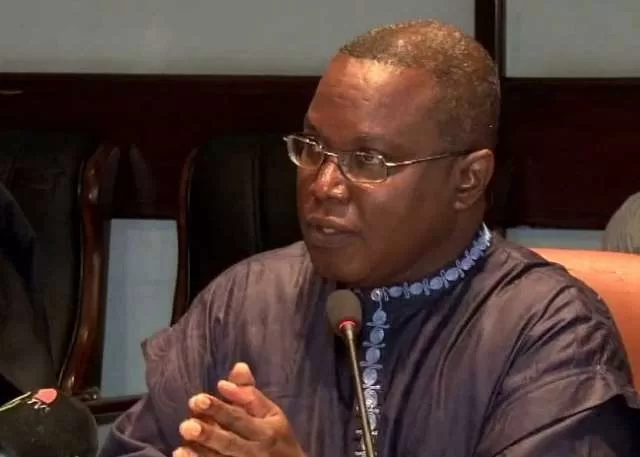IMF Program in Ghana: A Vicious Cycle of Bailouts – Nii Moi Thompson

- Dr. Thompson argues the IMF programme is worsening the Ghana's economic situation
- Ghana is likely to re-enter another IMF programme immediately after exiting the current one
- Dr. Thompson criticizes the government for imposing high taxes
Renowned economist Dr. Nii Moi Thompson has voiced serious concerns over the impact of the International Monetary Fund (IMF) programme on Ghana, arguing that it is worsening rather than alleviating the country’s economic challenges.
Dr. Thompson painted a bleak picture, suggesting that instead of providing relief, the IMF’s intervention is exacerbating existing problems and deepening the crisis.
In a recent interview, he predicted that Ghana could soon find itself back in another IMF programme immediately after exiting the current one.
According to Dr. Thompson, the current IMF programme seems poised to push Ghana into a cycle of repeated bailouts, possibly leading to the country’s 18th or even 19th engagement with the IMF.
“It’s clear that we’re in a dire situation, and I’m not alone in recognizing this. There’s another dimension we often overlook—the brain drain resulting from our economic and debt crises,” Dr. Thompson remarked.
He criticized the high taxes and interest rates imposed by the government on businesses and consumers, which he believes penalizes them unjustly for economic mismanagement.
“For instance, consider the impact on the private sector. Let’s question the ethical foundation of this programme. Why should businesses and consumers bear the brunt of government’s fiscal and monetary policy failures?” Dr. Thompson questioned.
He expressed doubts about the government’s ability to achieve inclusive growth post-IMF programme, citing a significant decline in real credit availability and questioning the strategy for promoting equitable economic development.
“Over the past fourteen months, inflation-adjusted credit to the private sector has consistently plummeted, averaging an 18% decline monthly. This approach, which drains the private sector, cannot possibly pave the way for inclusive growth once the programme ends,” he argued.






